Kyoto is a city bursting with cultural treasures, and two of its most famous offerings are zazen (Zen meditation) and the tea ceremony. If you’re looking for an authentic and unforgettable experience that combines these two traditions, look no further than Wabunka’s Zen Meditation and Tea Ceremony.
This special experience takes place in a stunning subtemple within the Daitoku-ji complex, one of Kyoto’s most beautiful and serene temple compounds. It’s a chance to immerse yourself in Japanese spirituality and cultural refinement.
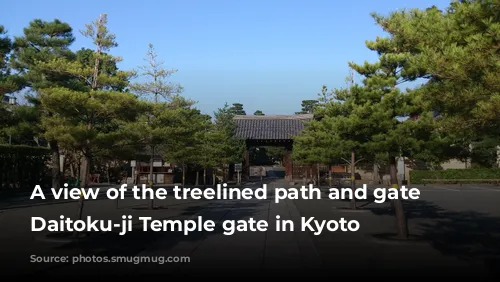
Discovering Daitoku-ji’s Hidden Gem
As a long-time resident of Japan, I’ve had the privilege of experiencing countless zazen and tea ceremony events. Some were touristy and superficial, while others felt authentic but inaccessible to non-Japanese speakers. When I heard about the combined experience at Daitoku-ji, I knew I had to try it. The allure of experiencing both zazen and the tea ceremony within the tranquil atmosphere of Daitoku-ji was irresistible.
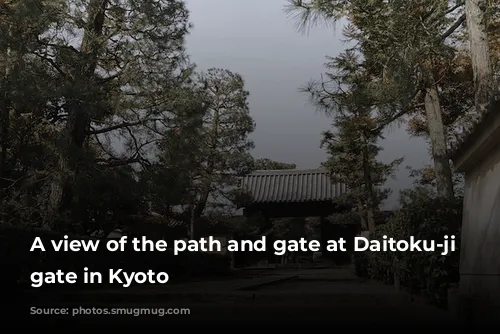
A Seamless Experience: From Booking to Zen
Wabunka, a company dedicated to curating authentic Japanese experiences, manages the Zen Meditation and Tea Ceremony. They are incredibly responsive and provided detailed information about the experience, including meeting times and locations. They also offer bilingual interpreters to ensure everyone feels welcome and understood.
Booking is easy through Wabunka’s website, making it accessible for travelers of all levels. On the day of the experience, my translator, Angelino Donnachaidh, a writer and translator based in Osaka, met me at the main gate of Daitoku-ji Temple. His friendly and knowledgeable nature made the entire experience even more enriching.
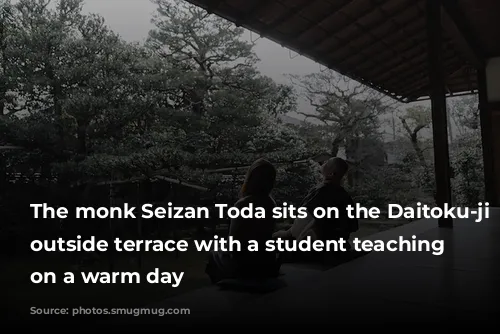
Stepping into Serenity: Daiji-in Subtemple
As we walked through the atmospheric lanes of Daitoku-ji, Angelino shared insightful information about the temple and zazen. The subtemple where the experience took place, Daiji-in, is rarely open to the public, making it a unique and exclusive opportunity.
We were warmly welcomed by Seizan Toda, the head monk, who led us into the temple and offered us a cup of bancha tea (matcha would be served later during the tea ceremony). Seizan shared fascinating insights into the philosophy and practice of zazen, which Angelino expertly translated.
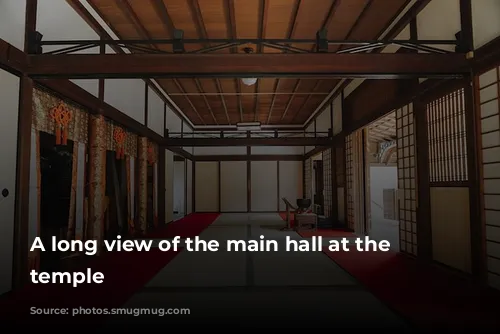
Finding Calm in the Stillness: Zazen Practice
The main hall of Daiji-in, overlooking a tranquil Zen garden, was the perfect setting for our zazen practice. While I expected to sit on cushions on the tatami mat floor, we sat on low stools, a welcome change for guests who might find traditional seating uncomfortable.
Seizan led us through gentle relaxation and breathing exercises, explaining the core principles of Zen and the techniques of zazen. Zen emphasizes direct experience of reality, seeking to quiet the mind and transcend the constant stream of thoughts through the use of koans (riddles).
Seizan’s explanation was enlightening, stressing that there is no specific goal in zazen. Instead, the focus is on simply sitting in stillness, observing the breath and letting thoughts gently drift by. He embodied the serenity and wisdom he spoke of, making the experience deeply impactful.
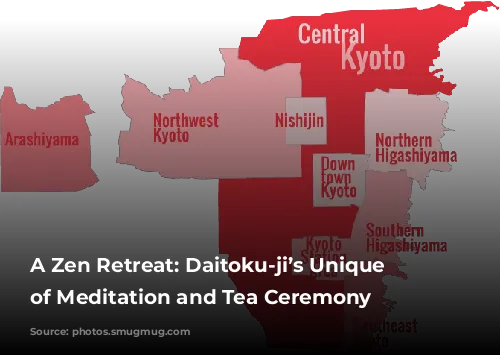
A Moment of Quietude: Silence and Awareness
After Seizan rang a bell to signal the start of zazen, I closed my eyes and tried to follow his guidance. Despite my efforts, moments of quietude arose, allowing me to become aware of my breath and the sounds of the garden. It was a stark contrast to the bustling energy of Tokyo, offering a much-needed respite.
Following two sessions of zazen, Seizan led us through a series of stretching and breathing exercises, reminiscent of yoga, which provided welcome relief after days of exploring the city on foot.
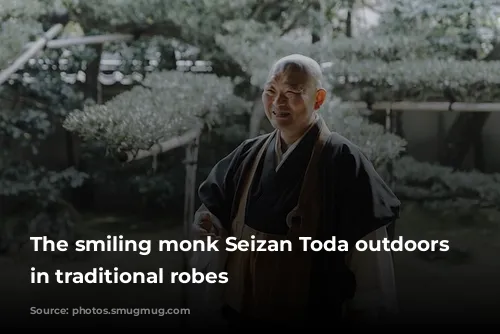
The Art of Tea: A Refined and Intimate Ceremony
After reflecting on the experience, we entered a beautiful chashitsu (tea room) through a narrow doorway. As Seizan prepared three cups of matcha tea, he continued the conversation about zazen and the tea ceremony. His movements were deliberate yet relaxed, a stark contrast to the rigid atmosphere of many traditional tea ceremonies.
The steam rising from the iron pot as he poured hot water into the cups created a warm and intimate atmosphere. It was a delightful way to enjoy a cup of tea with others in a refined and peaceful setting, highlighting the true essence of the tea ceremony: appreciating the simple beauty of the moment.
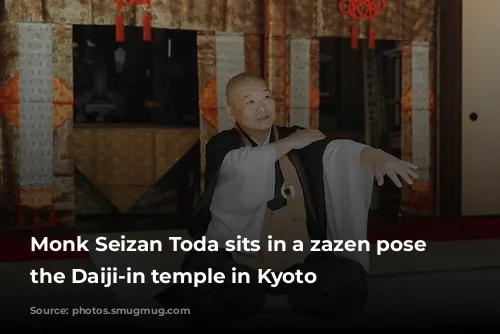
Embracing the Sound of Silence: A Soothing Chant
Seizan then invited us to sit back in the main hall and chanted a Buddhist sutra. Closing my eyes, I allowed myself to be enveloped by the soothing sound of his voice. When the bell signaled the end of the chant, I felt a deep sense of tranquility, wishing the experience could continue.
A Lasting Impression: Tranquility Found
Seizan bid us farewell at the entrance of the temple, ending an experience that lasted only two hours but left a lasting impression of peace and serenity.
If you’re seeking an authentic and enriching cultural experience, Wabunka’s Zen Meditation and Tea Ceremony at Daitoku-ji Temple is a must-try. This peaceful retreat offers a unique glimpse into traditional Japanese religious culture, leaving you with memories that will last long after you return home.

